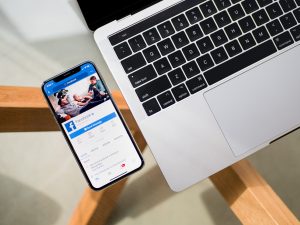Social Media and Its Role in Mental Health
Social media hasn’t lived up to the hype with scientific studies indicating bad side effects for some users. With sources coming out stating it is “damaging to the mental health,” why do members still use it? Are there any positive effects of social media on mental health? Should we be worried about these results? Today, we will take a deeper look at the correlation between social media and mental health.
Negative Aspects of Social Media & Mental Health
Some of the negative aspects found in studies show a link between time spent scrolling through social apps and negative body image. This finding might correlate back to comments online from others or even jealousy brewed from others’ pictures. If you post something on social networks, your content remains exposed to the world. Doing so can put you in a spotlight you didn’t necessarily want. If your privacy settings allow it, anyone can comment on your post. Another study shows that receiving a high number of likes on photos showed increased activity in the brain’s reward center. So, each time you get a like, it makes you feel a little happier, causing you to devote a few more minutes to the social network drawing you in.
Studies have shown that heavy usage of social media can cause other issues with mental health, such as depression, anxiety, etc. Many people reported feeling lonely despite being online with others in private chats, calls, and servers. There are more downsides, such as fake friends and fewer interactions with other people in the real world. Additionally, because everyone seemingly is protected behind a screen and practically anonymous, cyberbullying is a rampant issue that affects people. The youth of today’s culture is especially victim to social media’s downside. It has gotten to the point where even places of education are having to add cyberbullying to their anti-bullying policies. When using a social media platform, no matter who you are, you will always be at a potential risk.
Positive Aspects of Social Media and Mental Health
Social media doesn’t have all negative results. Some of those who suffer from social awkwardness or anxiety find it easier to communicate over the web, making it easier for them to learn to interact. Others can meet those who are more like-minded and find someone similar to them, which could’ve been harder in real life. Just as social networking can cause personal humiliation, it can be the motivation that gets you going. Following accounts that share positive quotes, photos, and posts can always get you pumped up for the day. Following positive people can make you get out more or even get you to try harder to work on yourself.
Additionally, social media can be a great educational tool, as crazy as it sounds. There are several profiles featuring individuals who do specific activities such as cooking, science, space studies, etc. Sometimes you may find yourself going down a rabbit hole where you were just casually scrolling and now you’re learning about blackholes lightyears away.
At the end of the day, the negatives and positives can be balanced out by limiting time on social media. Don’t get drawn in for too long, and if you recognize signs of poor mental health problems, log off. You don’t need social media to enjoy life, but if you have a few minutes to spend there, hop on.
Have Health Insurance Questions?
We hope that this information on social media is helpful for you.
Insurance is oftentimes overwhelming, and we want to shed light on the industry by answering your questions. Comment below and your question may be the topic of our next post!
If you liked this article, share it with your friends!
Empower Brokerage wants to help you find the insurance coverage you need and help you save money getting it. Stay on top of your health and give us a call at (844) 410-1320.
Get affordable health insurance quotes by clicking here.
See our other websites:
This article was updated on 8/30/24.


